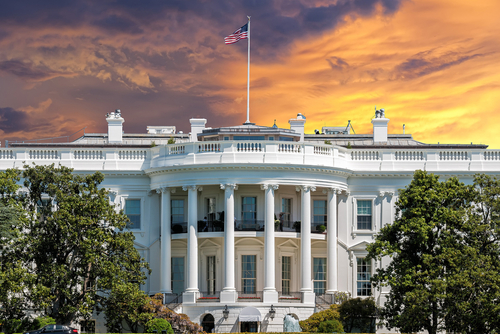
Calling it “not a serious” proposal, the White House said it opposed the House of Representative’s “Moving America Forward” Act, criticizing it on how it would be paid for.
The $1.5 trillion proposal would invest heavily in the country’s infrastructure including addressing the backlog of maintenance and repairs needed for the country’s roads and bridges; investing in public transit systems, railroads, and airports; and investing in water systems, schools, and broadband internet systems.
Proposed by the Democrat-controlled House in May, the measure was almost immediately decried by Republicans as partisan and not inclusive of their priorities for the country.
“America’s infrastructure is in crisis,” House Transportation Committee Chairman Peter DeFazio (D-OR) said. The country’s “roads, bridges, public transit, rail, airports, ports and water systems are badly outdated, causing stress and safety hazards for our citizens, strain on our economy, and an enormous toll on public health and our planet.”
Facing a Sept. 30 deadline to reauthorize surface transportation spending, the House is moving quickly on the bill, despite a White House pledge to veto it.
White House officials said the president would release his own surface transportation spending plan in the coming weeks.
However, in April 2019, Trump and Democratic leaders in the House agreed on a $2 trillion infrastructure spending plan but never determined how it would be paid for.
Also on Monday, the U. S. Chamber of Commerce sent a letter to Congress in opposition to the bill. Calling it too partisan and unlikely to pass, the Chamber said the bill would move the country further away from meaningful investments in the country’s infrastructure.
“We normally do not suggest how Congress should consider legislation, but in this instance, the stakes are too high for yet another failure. Therefore, we urge you to bring up for consideration the bipartisan bill reported in the Senate and consider any infrastructure related amendments that have the support of at least 20 Republicans and 20 Democrats – a rules change first put forward by the Problem Solvers Caucus. Such an approach would be the most likely to result in passage of a bipartisan bill that would have a chance of becoming law,” the Chamber said in its letter to Congress. “Furthermore, Congress should not continue to punt decisions about how to pay for investments in infrastructure. Dedicated revenues no longer support even current levels of spending, let alone the levels of investment America’s infrastructure so desperately need. The Chamber has long called for paying for increased infrastructure spending. In addition to putting specific proposals, such as a modest increase in the fuel user fee, on the table, we remain willing to work with all stakeholders on other reasonable approaches that can become law.”
Although several organizations, including the American Truckers Association, have called for raising the gas tax to pay for additional road repairs, Congress has not raised the gas tax since 1993.